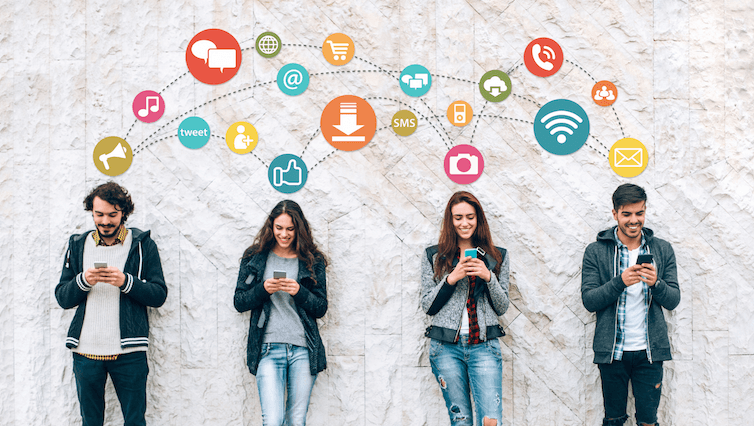Millennials as a generation are tough to manage. They are accused of being entitled, narcissistic, self-interested, unfocused and probably lazy. Entitled is the main accusation. They want to make an “impact” but majority have no idea what it really means. They are unsatisfied and that’s because there is a missing piece. Several factors are responsible for this state of affairs like bad parenting, impatience, environment and so on. However, one of the most important factors is their obsession with technology.
They are growing up in a Facebook, Instagram world. In other words, they are good at filtering things. They are good at showing people that life is amazing, even when they are depressed. So everybody sounds tough. Everybody sounds like they have all figured out. But the reality is that most people aren’t tough and they haven’t figured out anything. They always sound confident but most of the times they have no clue about their problems.
Engagement with social media and cell phones releases a chemical called dopamine. That’s why when we get a text, it feels good. So when we feel down or depressed and send text to few people and get a response, it feels good. That’s why we keep an eye on the responses we get on our posts. We regularly check our accounts; if it’s going slow we think we might have done something wrong, and these people don’t like me anymore.
In a study in 2012, Harvard research scientists reported that talking about oneself through social media activates a pleasure sensation in the brain usually associated with food, money and sex. Dopamine is the same chemical which is released when we are having fun. In other words it’s highly addictive.
We have age restrictions on smoking, gambling, drinking but we have no age restriction on social media and cell phones. An entire generation has access to an addictive, numbing, chemical called dopamine through social media and cell phones as they are going through the high stress of adolescence.
When we are very young, the only approval we need is the approval of our parents and as we go through adolescence we make this transition when we now need the approval of our peers. Some people, by accident, discover numbing effects of dopamine to help them cope with the stress and anxieties of adolescence. Unfortunately that becomes hard wired in their brains and for the rest of their lives when they suffer significant stress they will not turn to a person but will turn to addictive activities. Social stress, financial stress, career stress that pretty much the primary reasons why people start drugs.
What’s happening is, because we are allowing unfazed access to these dopamine producing devices and media. Basically it is becoming hard wired as we are seeing as they grow older. Too many kids don’t know how to form deep meaning for relationships. They will admit that the meaning of their friendship is superficial. They will admit that they don’t rely on their friends. Though they have fun with their friends but they also know that their friends will cancels them out if something better comes along.
Deep meaning for relationships are not there because they never practiced the skill set and worse, they don’t have the coping mechanisms to deal with stress, so when significant stress starts to show up in their lives they are not turning to a person but to a device- social media. They turn to things, which offer temporary relief. The science is clear that people who spend more time on Facebook have high rates of depression than those who spend less time on Facebook, as published in a journal of social and clinical psychology in 2014.
Keeping a balance is important. As they say, excess of everything is bad. There is nothing wrong with social media and cell phones but it’s the imbalance which has caused problems.
If we are sitting at dinner with our friends or family and we are texting somebody who is not there, that’s a problem, that’s an addiction. If we are sitting in a meeting with people we are supposed to be listening to and speaking and we put our phone on the table, that sends a subconscious message to the other participants that they are not just that important. The fact that we cannot put it away is because we are addicted. If we wake up in the morning and before doing anything else, we check our phone. We have an addiction and like all other addictions, it will make things difficult in the long run.





